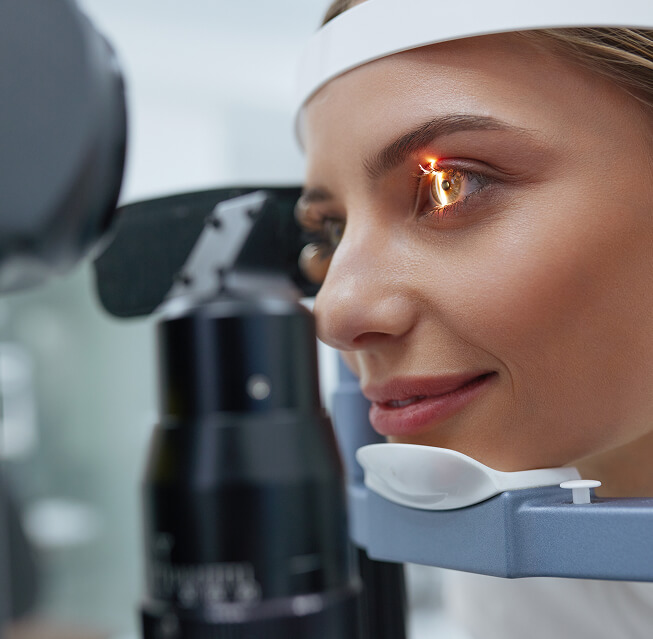EYE EXAMINATIONS
Routine eye exams are an essential part of maintaining your overall health and wellbeing. As well as checking whether you need glasses, they can pick up subtle changes that might affect your vision or general wellbeing, even before you notice symptoms. Spotting these signs early means you can take action sooner, helping you protect your sight and safeguard your future vision.

How often should you have an eye exam?
Most people are advised to have an eye examination every two years. However, some may need to come in more regularly, depending on their age, health, or family history. You might benefit from more frequent check-ups if you are:
- A child
- Aged 40 or over with a familyhistory of glaucoma
- Aged 70 or over
- Living with diabetes.
If you're unsure how often you should be seen, our team will be happy to advise.
What to expect during your appointment
Our standard adult eye exams typically take around 30 minutes and include retinal photography. Here’s what you can expect:
Health and history
We’ll ask about your general health, medication, and any family history of eye problems or symptoms you’ve noticed.
Vision check
You’ll read letters from a chart while we test different lenses to find the clearest option for you.
Eye health check
Using special lenses and a light, we’ll examine the front and back of your eyes. This includes retinal photography, where we take detailed pictures of the retina — the light-sensitive layer at the back of your eye. These images help us monitor your eye health over time and spot any early changes. We’ll also assess how well your eyes work together by covering each one in turn.
Pressure and field of vision
If needed, we’ll measure the pressure inside your eyes and test how well you see around the edges of your vision.


Your comprehensive eye exam
An advanced eye exam with optical coherence tomography (OCT) takes about 45 minutes. OCT is a cutting-edge technology providing detailed images of the retina and optic nerve – the pathway sending visual information to your brain. This helps detect small changes before symptoms appear and is especially useful for monitoring glaucoma and macular degeneration.
NHS eye examination eligibility
If you qualify under NHS criteria due to age, certain medical conditions, or benefits received, you may be eligible for a free NHS eye exam.
If you’re unsure whether you meet the requirements, our friendly team will advise and help you understand your options.

Book your eye exam
Contact us today to learn more or request an eye exam appointment via our online form. We’re committed to helping you enjoy clear vision – now and for years to come.

